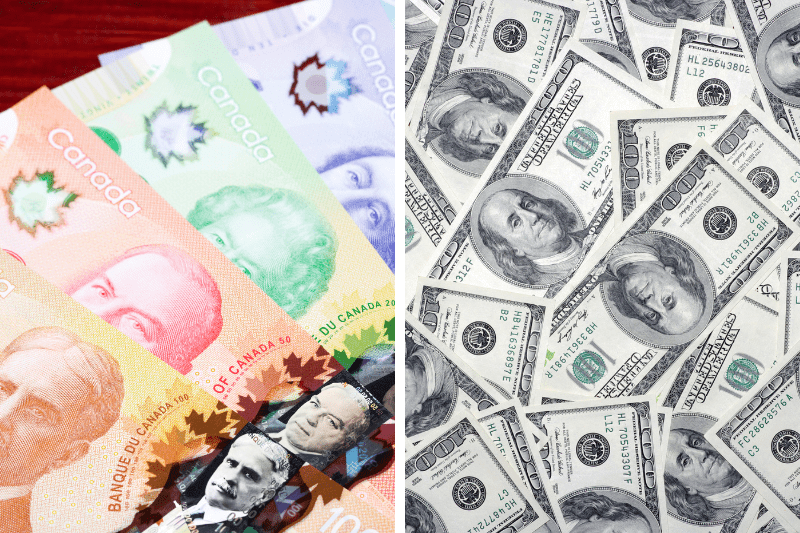By Scott Schieman, University of Toronto
The mood of Americans has been a hot topic in the news lately, especially following the recent United States presidential election. Enter the term “vibecession,” which describes the disconnect between people’s personal financial situations and the broader economy.
This disconnect, however, isn’t limited to the U.S. In fact, it may be even more pronounced in Canada. While my research has found that Americans’ outlook has shifted dramatically in recent years, it pales in comparison to the pessimism felt by Canadians.
As a sociologist who studies what people think and feel about getting ahead in life, I’ve been tracking perceptions of the quality of work and economic life in Canada and the U.S.
Since 2019, I’ve partnered with two research firms — Angus Reid Global and YouGov — to lead a series of nationally representative surveys of roughly 42,000 Canadian and American workers. I’ve repeatedly asked about their personal experiences with work and money, as well as their views about how other Americans and Canadians are faring on these same measures.
A striking pattern has emerged from my most recent surveys: there is a significant gap between individuals’ personal assessments and their beliefs about the financial well-being of others.
Financial struggles
In my 2024 surveys, Canadians and Americans reported similar financial struggles when asked: “How often in the past year did you not have enough money to buy food, clothes, or other things your household needed?”
About 70 per cent of Canadian and 62 per cent of American workers said they “rarely” or “never” had insufficient money for household necessities. But almost no one believes that most others share the same experience. In both countries, 43 per cent of respondents believe that most people frequently can’t afford basic necessities.
I also asked respondents: “How do your finances usually work out at the end of the month? Would you say you don’t have enough to make ends meet, barely have enough to get by, have just enough to make ends meet, have a little money left over, or have a lot of money left over?”
Responses were categorized into four groups:
- Struggling: Having not enough to make ends meet or barely enough to get by
- Just getting by: Having just enough to make ends meet
- Slightly getting ahead: Having a little money left over
- Comfortable: Having a lot of money left over
Once again, Canadians and Americans report similar personal financial well-being: 27 per cent in both countries said they are personally struggling, while half said they are slightly getting ahead or comfortable.
However, perceptions of others’ experiences diverged sharply between the two countries. While 43 per cent of Americans thought most others were struggling, a striking 65 per cent of Canadians thought the same about their peers.
All about the cost of living
Why might Canadians have such a distorted view of others’ financial well-being? A major factor is the cost of living, which continues to weigh heavily on many households.
While inflation has eased in recent months, this positive development has done little to shift Canadians’ pessimistic views about the economy.
This gloomy perspective is not new for Canadians. In 2020, 62 per cent believed the cost of living had worsened recently, compared to 46 per cent of American workers who felt the same.
Fast forward to October 2024, and the numbers paint an even darker picture: 84 per cent of Canadians said the cost of living has worsened, with 51 per cent believing it has become much worse. When factoring in those who were already sour about the cost of living and now characterized it as having “stayed the same,” it’s clear how deeply rooted this pessimism is.
By comparison, Americans remain less pessimistic. In October 2024, 65 per cent of Americans said it had worsened in comparison to 2020, with 35 per cent believing it got much worse.
Political consequences
My broader research seeks to understand how distorted perceptions about money shape the ways people think and talk about getting ahead in life, especially through their attitudes about work.
In this current moment, however, there’s an understandable focus on how such pessimism shapes political consequences — a topic relevant on both sides of the border. Both U.S. Vice President Kamala Harris and Prime Minister Justin Trudeau know well the political weight of these “bad vibes.”
Every election cycle, the old political adage “it’s the economy, stupid” seems to crop up again in relevancy. Perhaps a more apt version right now might be: “It’s people’s perceptions, stupid.” Public sentiment about financial well-being can weigh as heavily on political fortunes as the hard numbers themselves.
Scott Schieman, Professor of Sociology and Canada Research Chair, University of Toronto
This article is republished from The Conversation under a Creative Commons license. Read the original article.





